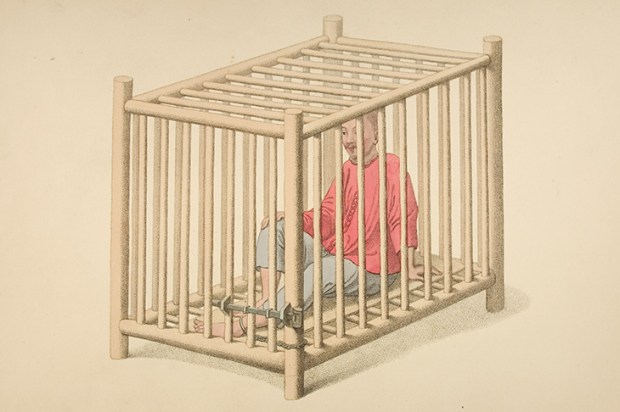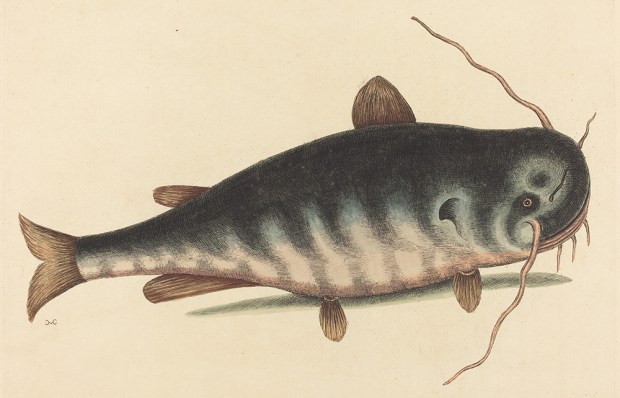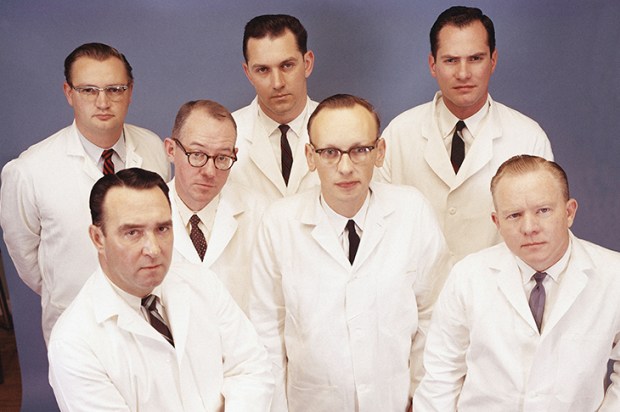The verb ‘to unsee’ turns up as a snappy, or trendy, way of saying that something is unforgettable—in a bad way. For instance, a character in a movie is exposed to something horrific, and then says they won’t be able to erase that horror from their memory –‘I can’t unsee that’. It strikes me as an odd combination of the negative prefix ‘un’ with the verb ‘to see.’ There was, it turns out, a very ancient verb ‘to unsee’ which is recorded from around 1395. However, the meaning of this old word was ‘To avoid seeing’ (Oxford English Dictionary). It is officially classified as ‘rare’—and the Oxford only has three citations, the most recent from 1871.
That is not quite the word meaning that is turning up these days, is it? The old ‘unsee’ seems to closely resemble Nelson putting his telescope to his blind eye in order to ‘unsee’ the flags signalling that he should retreat. The modern meaning is better captured by the online Urban Dictionary: ‘Used to describe an object so horrific that it becomes seared into your retinas such that it can never be forgotten.’ (They have a citation from 2007 – so perhaps a recent coinage?) The Collins Dictionary says that ‘unsee’ means: ‘to remove (something one has seen) from one’s consciousness’. But these days it’s being used to say the opposite – that there is something that you can’t remove from your consciousness – even if you want to. Only the Cambridge Dictionary captures the right idea, when it gives, as an example of the word ‘unsee’ in a sentence: ‘Once you have seen something, you can’t unsee it.’ So, the Urban Dictionary might be right— the modern meaning of ‘unsee’ might be a very recent one, and the dictionaries are just (slowly) starting to catch up.
Peter Bowler published the first book in his series of The Superior Person’s Little Book of Words in 1976. Sequels came in 1991, 1996, 2001, and 2008. They slightly resembled the old column in the Readers’ Digest ‘It Pays to Increase Your Word Power’ but with a much more snobbish purpose. Peter told me his intention was to equip his readers with verbal tools that would baffle hearers and win grovelling submission to a (clearly) superior brain. Now, four years after Peter’s passing, an American website is trying to play the same game by offering a list of ‘Twenty Words That Will Make You Sound Smart.’ But is their list really all that smart? It consists of: axiomatic, capitulate, avant-garde, aplomb, ennui, anomaly, facetious, acquiesce, scintillating, solipsistic, glib, cacophony, fastidious, perfunctory, panacea, non sequitur, equivocate, dichotomy, paradigm, and ubiquitous. Really? All these are part of the working vocabulary of every Speccie reader! (My six-year-old grandson knows ‘cacophony’ – which he learned from one of Lynley Dodd’s ‘Hairy Maclary’ books.) Instead of these everyday words, why not try explaining to that noisy eater that their chewing is giving you a bad attack of ‘misophonia’ – that will impress everyone at the table, and further Peter’s worthy project.
Is the verb ‘to wax’ part of every financial journalist’s vocabulary these days? In a recent report from Agence France-Presse we were told about ‘China’s waxing demand for electricity…’ Clearly ‘waxing’ simply meant ‘increasing’—but surely it’s an odd choice of words for the finance pages? This verb ‘to wax’ goes back to the very beginning of the English language, back to when the Anglo-Saxons spoke Old English. The word seems to have come from what the Oxford English Dictionary calls ‘a common Germanic verb’.Well, common in those days, perhaps. But these days? Not so much. There are related words not only in the other Germanic languages but even in ancient Greek and in Sanskrit. Which means that the source probably goes all the way to a postulated language called PIE – Proto-Indo-European. In the full Oxford the list of ‘citations’ under the verb ‘to wax’ seems to end around 1914 (and mostly deals with the moon waxing and waning). Hence, I find it a little odd for a finance writer in a broadsheet newspaper to write about something ‘waxing’ rather than increasing. (Perhaps the Agence France-Presse journalist who wrote it is dreaming of becoming a novelist? Or a poet?)
Got something to add? Join the discussion and comment below.
Contact Kel at ozwords.com.au
You might disagree with half of it, but you’ll enjoy reading all of it. Try your first month for free, then just $2 a week for the remainder of your first year.













